Why Does My Compost Smell Bad? Common Causes and Easy Fixes
A well-balanced compost pile should not smell bad, so if it stinks, then something has gone wrong. Find out why it's happening and how to remedy the situation.

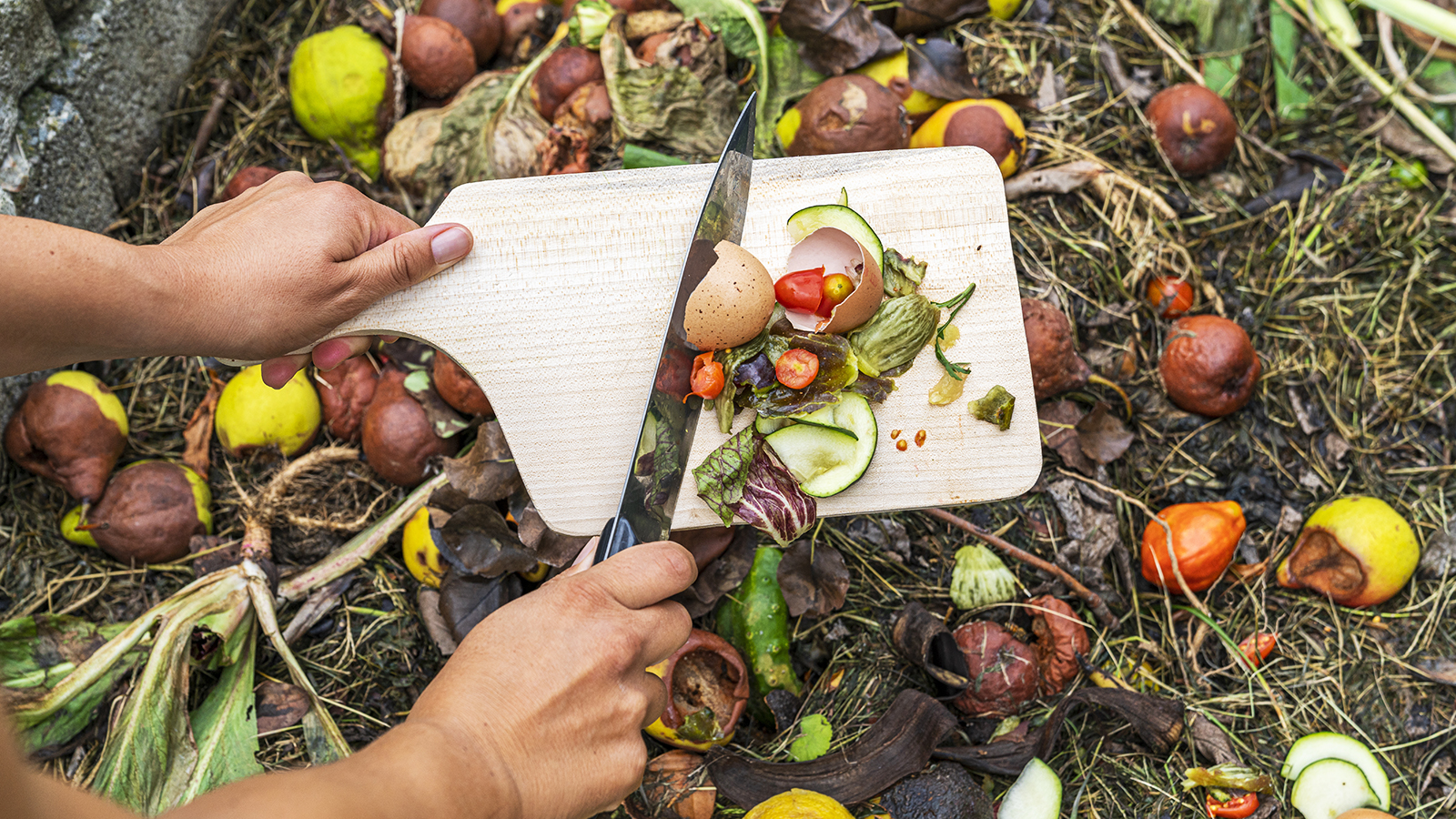
Sign up for the Gardening Know How newsletter today and receive a free copy of our e-book "How to Grow Delicious Tomatoes".
You are now subscribed
Your newsletter sign-up was successful
Ever cracked open your bin and wondered why your compost smells suddenly more like sewer than soil? That’s not supposed to happen.
Does compost smell? A little, sure. But if it’s bad enough to make you gag or smells like something actually died in there, then that’s a problem. Compost shouldn’t hit you like that. When things are working right, the pile has an earthy smell. Maybe even kind of sweet, like damp leaves after a good rain.
If it stinks, odds are that something has gone off track and you have composting problems. Let’s get you sorted, and you’ll be on your way to knowing how to compost properly.
What Should Compost Actually Smell Like?
Finished compost smells like dirt. Good dirt. You know that rich, warm scent you get in the woods? That’s the goal. If your pile smells like ammonia, sour garbage, or – worse – like poop, it’s time to take a closer look. In most cases, the issue comes down to too much nitrogen-rich “green” material, not enough dry “brown” material, poor aeration, or too much water.
If you’re new to compost "greens and browns", the greens are ingredients like food scraps and grass clippings, while the browns are comprised of materials like dry leaves, paper, or straw. You really want to go for a healthy mix. If you are not sure where to start, then learn about what can be composted, and you'll start seeing the pattern right away.
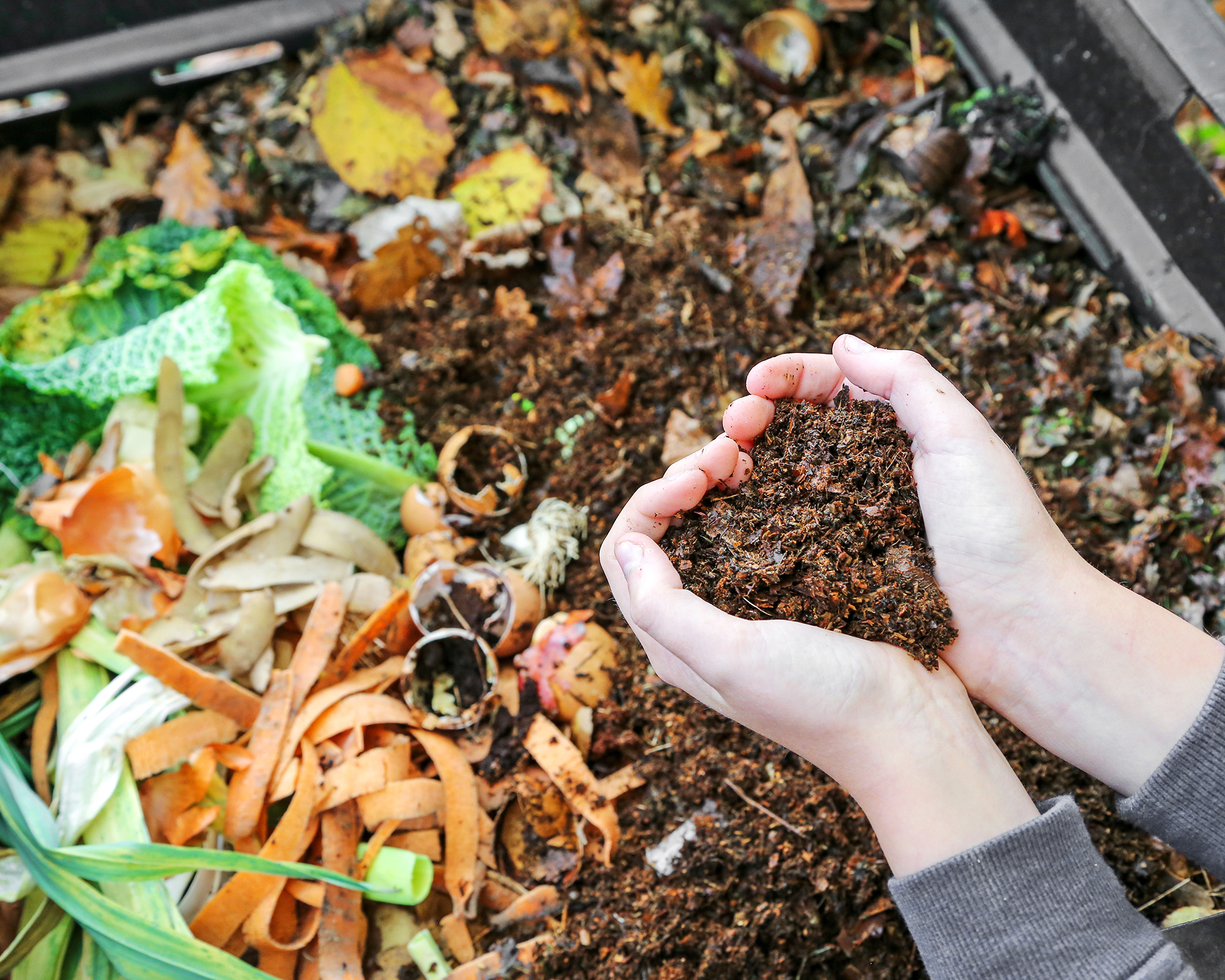
What Makes Compost Stink?
There’s a short list of usual suspects when compost starts to turn foul:
- Too Much Green Material
Composting food scraps, wet grass clippings, and coffee grounds is great – but in moderation. Dumping them in without balancing with dry browns creates a soggy mess. That’s prime territory for anaerobic bacteria, which smell terrible. Like… landfill terrible. - Not Enough Browns
Without enough carbon-rich brown material, your pile becomes a swamp. Browns like shredded cardboard or dry leaves give your compost structure and help absorb excess moisture. Without them, you’re basically making fermented garbage. - Poor Aeration
Airflow is everything. Compost needs lots of oxygen to break down correctly. If it’s packed too tight or hasn’t been turned, the pile starts to go anaerobic, and that’s when it starts to smell like sewage or manure. - Too Much Moisture
Compost should feel like a wrung-out sponge. If it’s dripping, it’s drowning. Compost that is too wet will smell putrid or like rotting eggs and will look slimy. Rain, juicy food scraps, or overwatering can all flood your pile, driving out air and inviting rot. - Not Layering
Sometimes a compost pile has the right materials balance, but the green material is isolated from the brown material. In these cases, it will start to decompose incorrectly and will start to give off a bad smell. If this occurs, the compost pile will smell like sewage or ammonia. - Wrong Stuff in the Pile
Look, just because it came from your kitchen, doesn’t mean it belongs in your compost. Meat, bones, dairy, and grease, such as cooking oil, are a hard no for backyard bins. They’ll break down eventually, sure – but the smell? You’ll regret it.
If you want to compost these types of food waste, then it's worth investing in an electric composter to quickly break down and dehydrate the material. The best models nurture beneficial microbes in the process, including the Reencle, available on Amazon, which produces plantable compost in as little as two weeks.
Sign up for the Gardening Know How newsletter today and receive a free copy of our e-book "How to Grow Delicious Tomatoes".
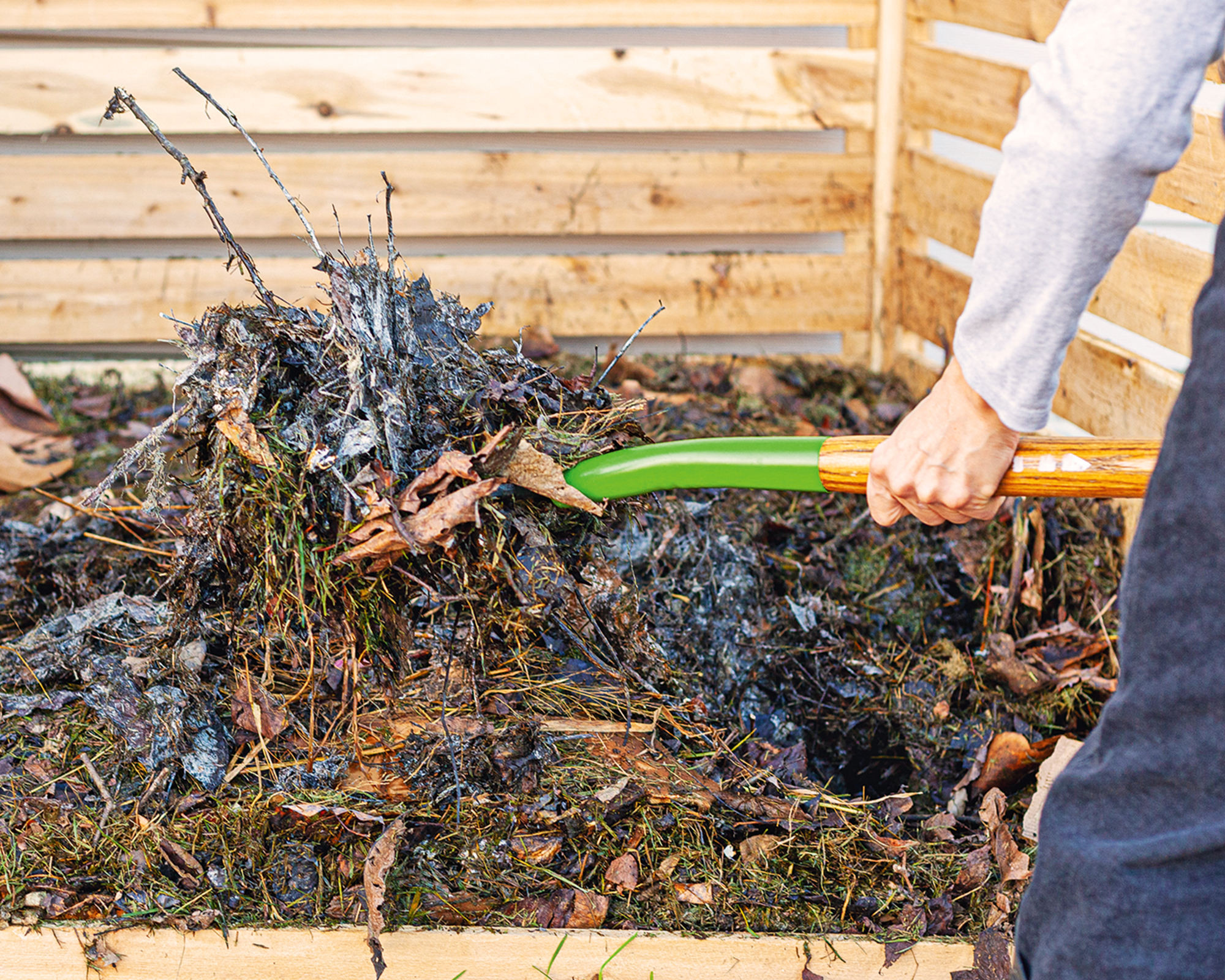
How to Fix a Stinky Compost Pile
If your compost smells bad, don’t panic. Chances are, you can fix it with a few small changes.
First, add browns. Dry leaves, shredded newspaper, straw – whatever you’ve got. Mix it in thoroughly. This will absorb moisture and help rebalance your nitrogen-carbon ratio.
Then, turn the pile. Get a pitchfork in there, and fluff it up. You want to break up clumps and reintroduce oxygen. If your compost bin smell has been getting worse every day, this is probably the fastest way to turn things around.
Still too wet? Cover it with a tarp and let it dry out. Stop adding juicy food waste for a bit, and keep an eye on the texture.
How to Prevent Compost Odor in the Future
Once you’ve cleaned things up, keeping the smell away is pretty simple. Add greens and browns in layers, like compost lasagna. Turn the pile weekly or at least every other week. Keep it moist, not soggy. Cover it during heavy rain. Avoid meats, dairy, and anything greasy. When you empty it out, clean your compost bin to prevent odor hangovers affecting the next batch.
A good compost system is a living thing – it breathes, it sweats, it changes. The more you check in on it, the better it’ll behave.
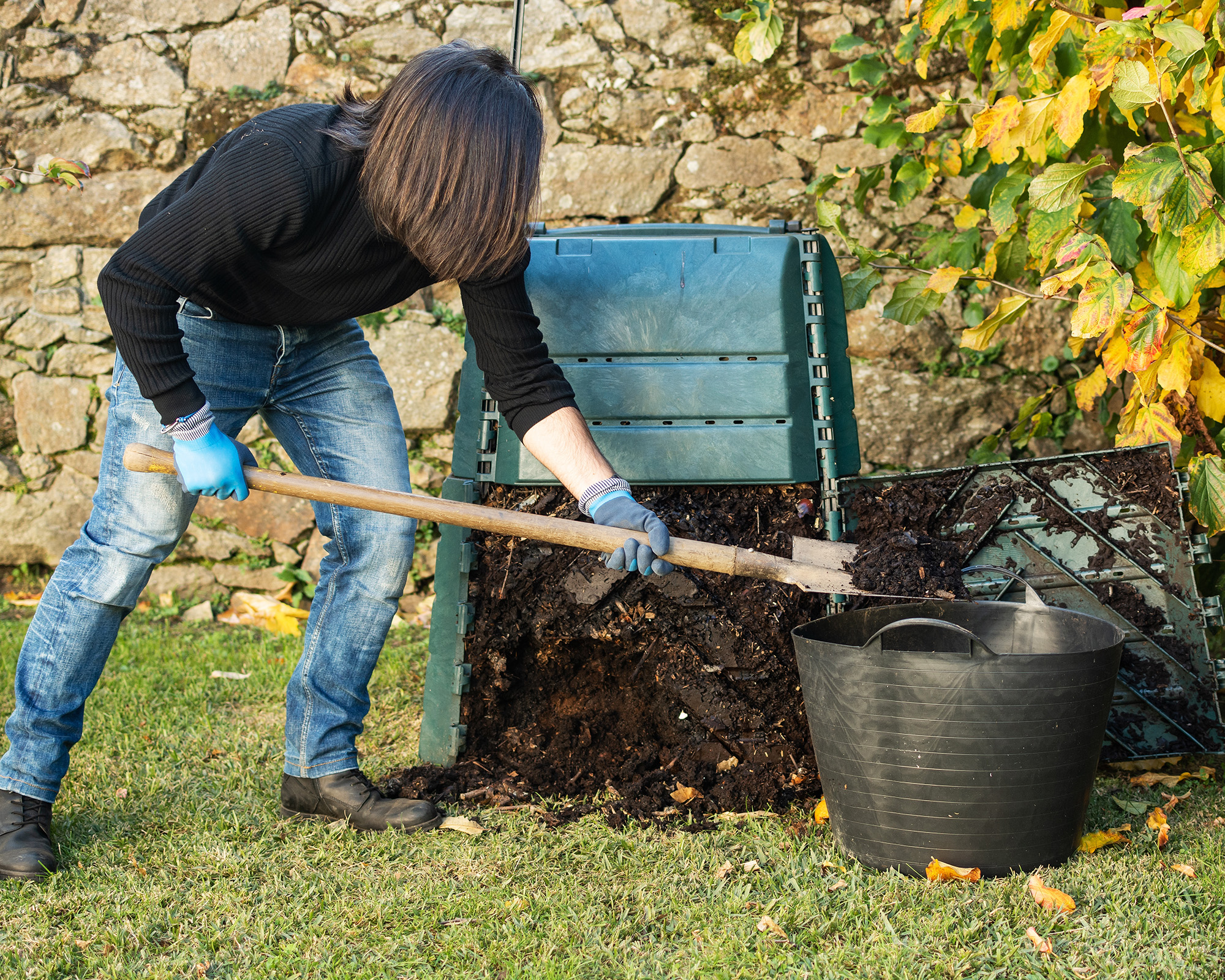
Should You Ever Start Over?
Sometimes, the answer will be yes. If your compost smells like poop and nothing helps, even after you’ve added browns, turned it, and waited, then it might be time to think about starting again. Especially if it’s compacted, saturated, and crawling with pests.
A little mold, though? Totally fine. White fuzz or thread-like compost fungus means the microbes are doing their job. It’s when you’ve got black sludge and a stench that knocks you over that you should consider pulling the plug and ending it.
In most cases, you can save the pile by fixing the balance, adding air, drying it out, and stopping tossing in the wrong stuff.
Compost doesn’t have to be complicated, but it does ask for a little attention. Take care of it, and it’ll take care of your garden.
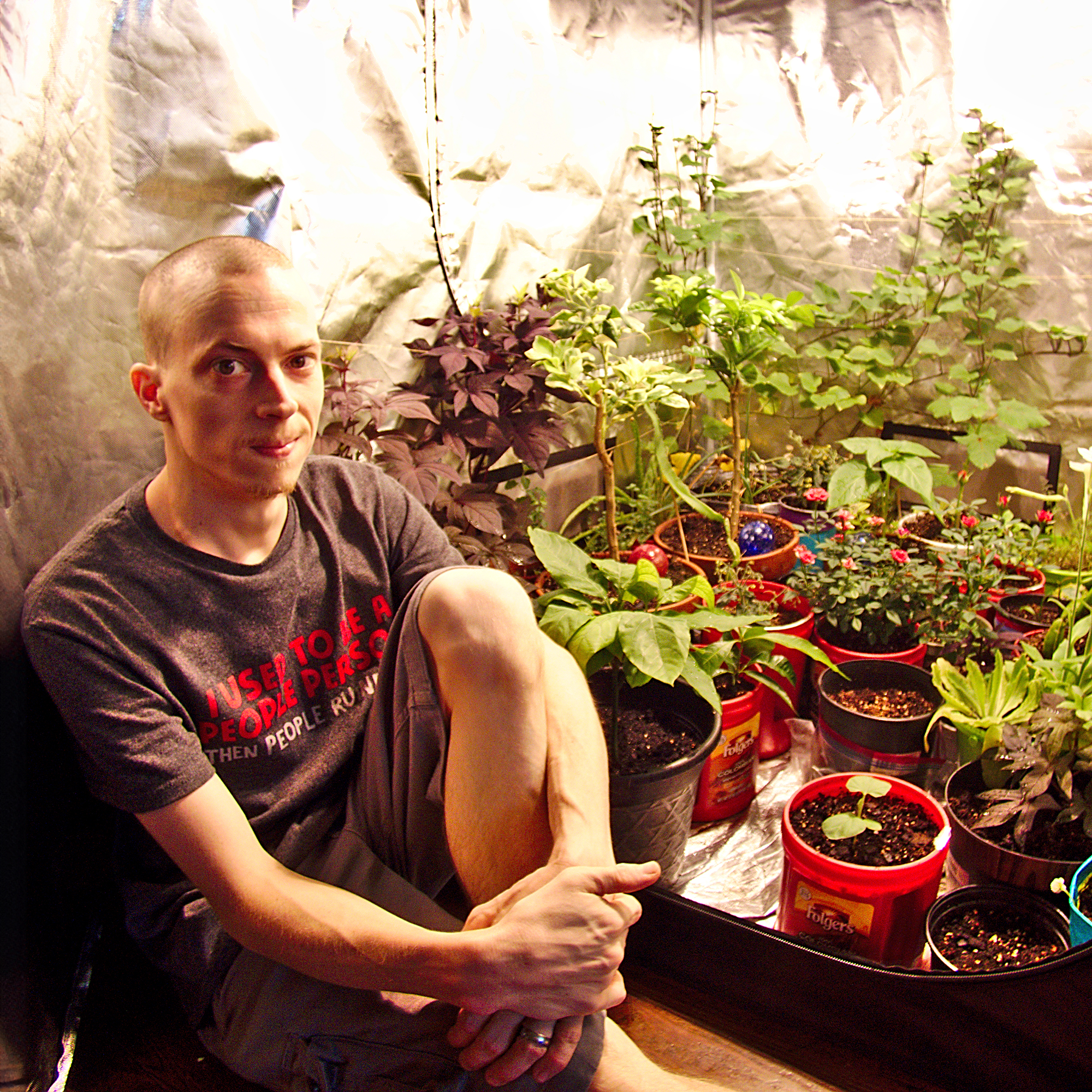
Tyler’s passion began with indoor gardening and deepened as he studied plant-fungi interactions in controlled settings. With a microbiology background focused on fungi, he’s spent over a decade solving tough and intricate gardening problems. After spinal injuries and brain surgery, Tyler’s approach to gardening changed. It became less about the hobby and more about recovery and adapting to physical limits. His growing success shows that disability doesn’t have to stop you from your goals.